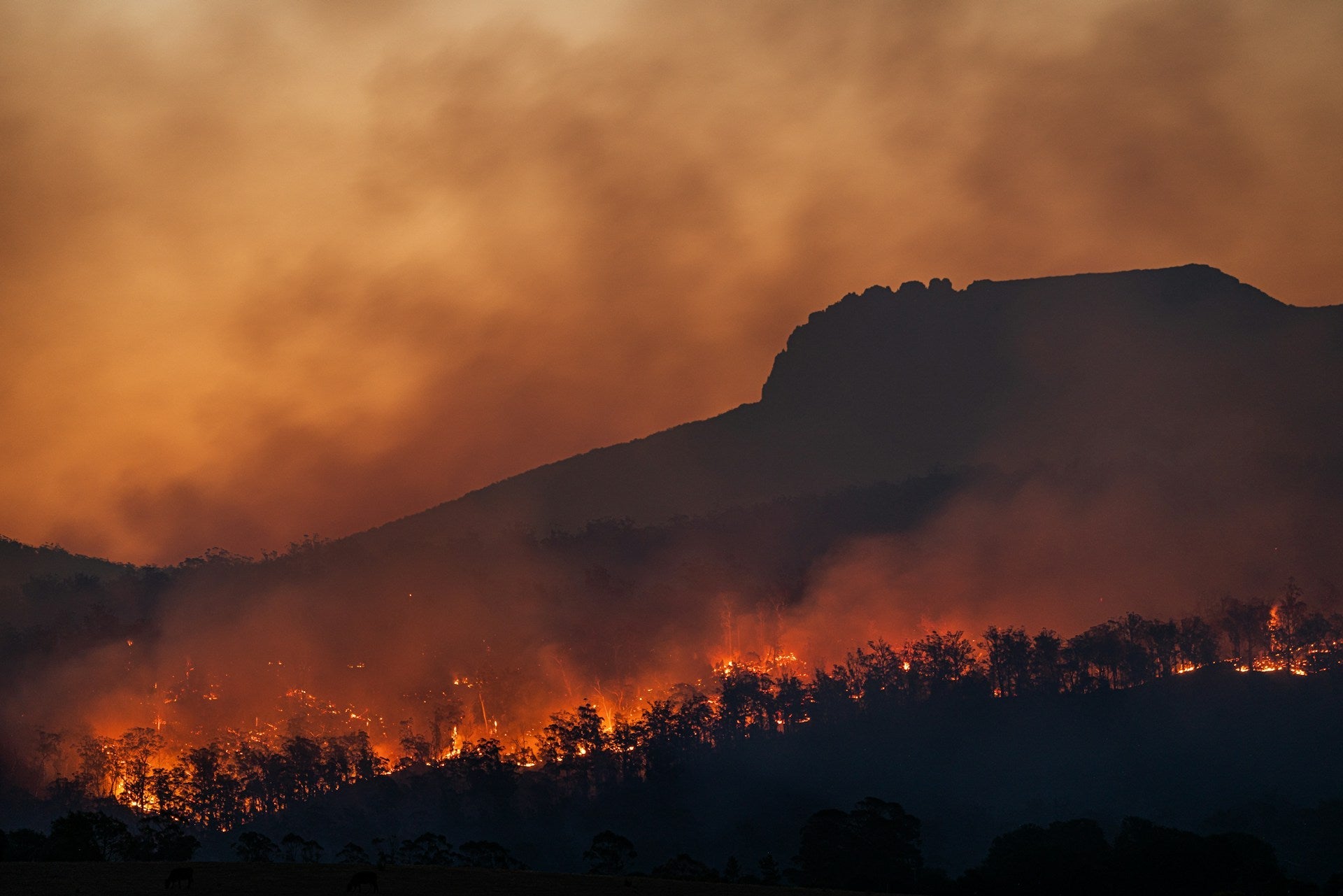How Poor Air Quality Affects Your Holistic Health
As wildfires become more frequent due to climate change, the challenge of maintaining clean air is more daunting than ever. Understanding how poor air quality impacts our holistic health is not just about statistics; it’s about recognizing the real-world effects on people’s lives and finding ways to mitigate this growing problem. This article offers insights into air pollution's physical, mental, and environmental consequences and provides thoughtful strategies to protect yourself and your loved ones. Let’s explore how we can nurture our well-being and foster resilience against environmental challenges.
The Physical Impact of Poor Air Quality
Respiratory and Cardiovascular Health
The invisible toxins in polluted air and wildfire smoke deeply affect our respiratory and cardiovascular systems. Conditions like asthma and chronic obstructive pulmonary disease (COPD) can be aggravated or even triggered by inhaling fine particulate matter. It’s disheartening to see individuals struggling to breathe in areas blanketed by smoke. Moreover, long-term exposure can inflame the cardiovascular system, leading to serious conditions such as heart attacks. Our hearts go out to those who live in high-risk areas, where they face these dangers daily, reminding us of the urgent need for cleaner air.
Long-term Effects on Organ Health
The continuous inhalation of polluted air can prematurely age our lungs and impact brain function, with potential links to neurological disorders like Alzheimer’s disease. It’s a sobering thought that the air meant to give life could instead diminish it over time. Beyond just the lungs and heart, toxins in air pollution have been shown to adversely affect the kidneys and liver, contributing to broader health complications. Understanding these impacts is crucial for advocating stronger environmental protections and personal safety measures.

Psychological and Cognitive Effects
Mental Health Concerns
The link between air quality and mental health is increasingly recognized in scientific literature, highlighting significant concerns beyond the immediate physical health implications. Chronic exposure to polluted air is associated with elevated rates of depression, anxiety, and even changes in mood and behavior. The inhalation of pollutants like particulate matter and nitrogen dioxide can lead to inflammation not only in the lungs but also in the brain, disrupting neurotransmitter pathways such as serotonin and dopamine, which are crucial for regulating mood and emotions. Moreover, living in areas with poor air quality can create a chronic stress environment, reducing overall life satisfaction and increasing the risk of psychiatric disorders. It's crucial to understand these impacts as they underscore the pervasive nature of air pollution on well-being, urging stronger actions toward cleaner air initiatives.
Cognitive Decline
Poor air quality doesn’t just affect emotional health; it also poses a risk to cognitive functions. Studies have shown that high levels of air pollutants can impair cognitive performance in both children and adults. In children, pollutants can interfere with brain development, leading to attention deficits and decreased academic performance. Adults exposed to high pollution levels may experience cognitive decline at a faster rate than those in cleaner environments, increasing the risk of developing neurodegenerative diseases like Alzheimer's. These findings highlight the need for comprehensive strategies to mitigate air pollution exposure to protect our cognitive health from the formative years into old age.
Environmental and Social Effects
Broader Environmental Impact
Poor air quality doesn’t just affect human health; it damages the ecosystems that sustain us. This broader environmental degradation can lead to more profound health implications, impacting entire communities. Loss of biodiversity, changes in climate, and degraded landscapes are just a few of the ecological consequences of sustained air pollution. This degradation can result in broader health implications, affecting communities and reducing their ability to thrive.
Economic and Social Costs
The health care costs and economic impact of diseases related to air pollution, including those exacerbated by wildfire smoke, are significant. This includes increased healthcare spending and reduced productivity due to illness. But the social costs are also steep, affecting quality of life and access to natural resources. Communities often find themselves needing to band together to demand change, reinforcing the need for collective action in the face of such widespread challenges.

Protecting Yourself and Enhancing Holistic Health
Personal Air Quality Management
Empowering yourself to combat the effects of poor air quality involves using air purifiers, houseplants, and staying informed through air quality indexes. It’s about making informed choices to protect your health and finding peace of mind in proactive actions. Additionally, wearing masks during high pollution days and ensuring adequate ventilation indoors can also help reduce exposure. Simple actions, when multiplied across communities, can lead to significant improvements in local air quality.
Community and Policy Engagement
Advocating for cleaner air is not just an environmental issue—it’s a call to safeguard our collective future. By supporting policies that reduce emissions and participating in community initiatives, we can help foster a healthier, more sustainable world. Engaging in local and national environmental campaigns, educating others about the impacts of air pollution, and supporting green energy initiatives are all ways to make a difference. Together, we can push for changes that will lead to cleaner air and a healthier environment.
Understanding and addressing the holistic impacts of air quality are vital in our quest for a healthier, more sustainable future. It’s a journey we must embark on together, with empathy and determination, to ensure that our environment nurtures rather than harms. Through informed choices and community action, we can protect our health and the health of those around us, making a commitment to a cleaner, greener planet.




Leave a comment